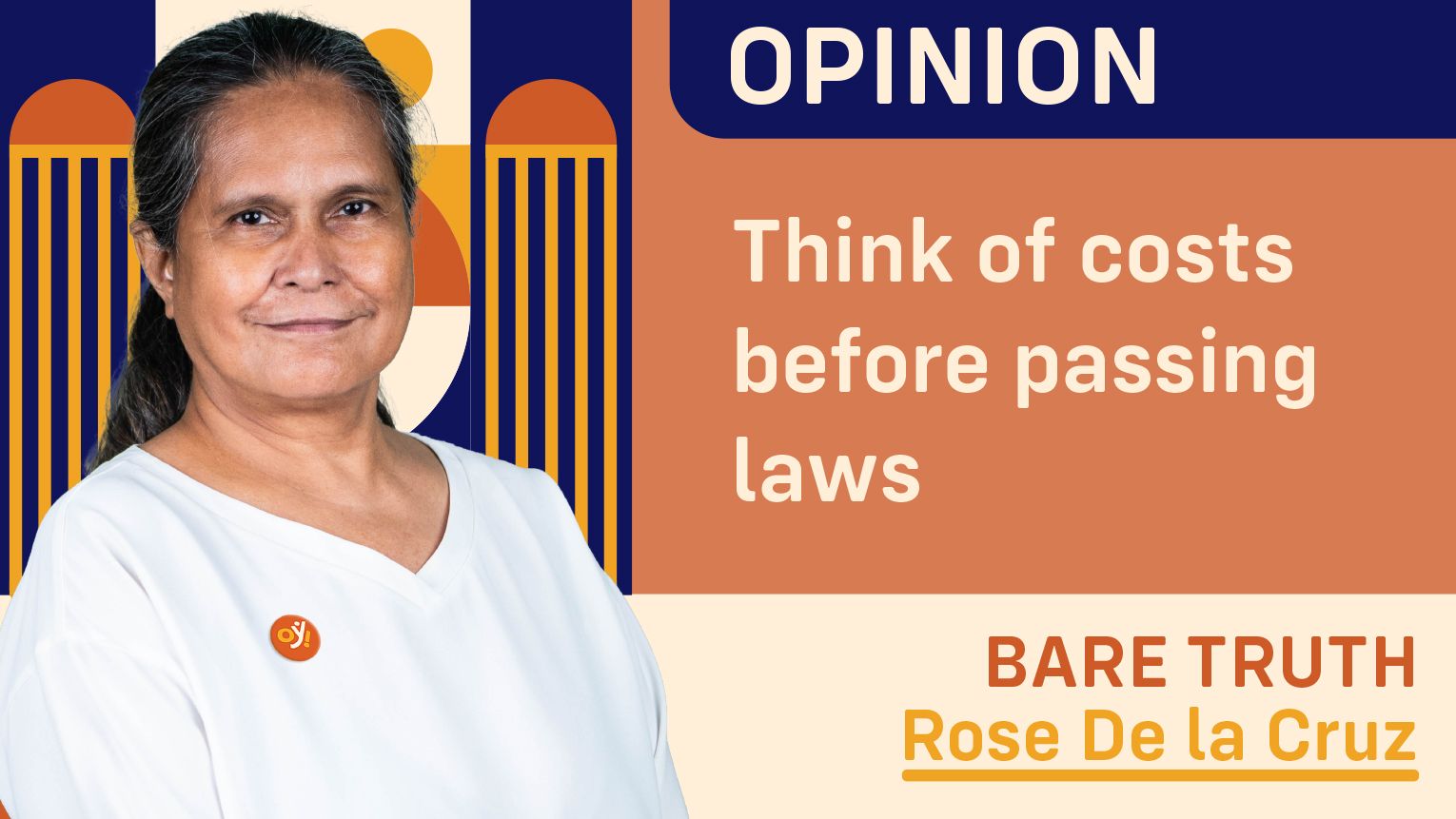For the longest time, I have been saying that we don’t need more laws. We need to improve on the laws that have been passed already. And before we pass laws, we must make sure there are funds available to enforce the law, otherwise it would just be another archived piece of legislation.
For so many years, our legislators have been creating so many departments, bureaus, councils and regulations that all obviously need people and funds to enforce, otherwise they are just empty pieces of paper that legitimize the continued presence of these congressmen, whose very existence depends on their fat salaries, allowances, big (and highly paid) staff complement, travels,, ayudas and of course (most important to them) the fat from pork barrel.
And they continue to do so, leading to laws that conflict with each other, lack of synchronicity in their adoption and enforcement and a mayhem that (they do not want to admit) they caused.
And now the Congressional Policy and Budget Research Department, in a discussion paper, urged the lawmakers to consider the cost of proposed laws to ease pressure on the government’s finances. (What do they care, they are the recipients of such monies, and so long as they can justify their presence, they will continue doing so).
The discussion paper said “the Philippines presently has no office designated to do policy costing. The role of legislators in budgeting should not end with passing the national budget alone,” the think tank said.
“Congress needs to evaluate how appropriation laws are implemented to ensure that public money is spent solely for the purposes for which they have been appropriated,” it said.
Policy costing aims to guide lawmakers in assessing the adequacy of funds for a specific government program or project. It would also help in evaluating operational efficiency based on the costs, reported Business World.
“It simulates how much a policy proposal will change the amount by which the budget is expected to be in surplus or deficit,” CPBRD said. “Moreover, it assesses whether its implementation will have long-term budget consequences or if it would impose mandates on other levels of government.”
Even the Department of Budget and Management’s (DBM) proposed Budget Modernization bill, which seeks to institutionalize the cash budgeting system and improve fiscal planning, does not include a provision on policy costing, CPBRD noted.
The Budget Modernization bill is a priority measure of the Marcos administration but is still pending at the House and Senate committee levels.
In other countries, policy cost estimates are used as basis for mid- to long-term fiscal projections like gross revenue and expenditure, fiscal balance, and national debt, according to the CPBRD. Cost estimates are often produced by independent fiscal institutions, it added.
“If policy costing is to be considered in the Philippines, there is a need to clearly determine the purpose, extent, and institutional arrangements in preparing policy cost estimates.”
The think tank cited 2023 data from the DBM’s Fiscal Planning and Reforms Bureau, which showed that around 205 laws have funding deficiency, while 159 laws do not have specific budget requirements.
“These laws can put pressure on the government to increase deficits. This may also result to higher tax imposition at some future time,” CPBRD said.
Rizal Commercial Banking Corp. Chief Economist Michael L. Ricafort said policy costing could help the government narrow its budget deficit.
“This is part of fiscal reform measures in terms of more disciplined government spending to help narrow the budget deficit and make the country’s debt management more sustainable over the long term,” Ricafort told Business World.
The Development Budget Coordination Committee in April raised its budget deficit ceiling to P1.48 trillion this year from P1.39 trillion previously. The deficit as a share of GDP is projected to stand at -5.6% this year from -5.1%.
Ricafort said the DBM or government agencies’ respective budget and planning teams can help provide policy cost estimates.
“I think DBM has the greatest expertise and specialization as it consolidates the budget from different government agencies,” he concluded.
#WeTakeAStand #OpinYon #OpinYonColumn #ColumnbyRosedelaCruz #BareTruth
